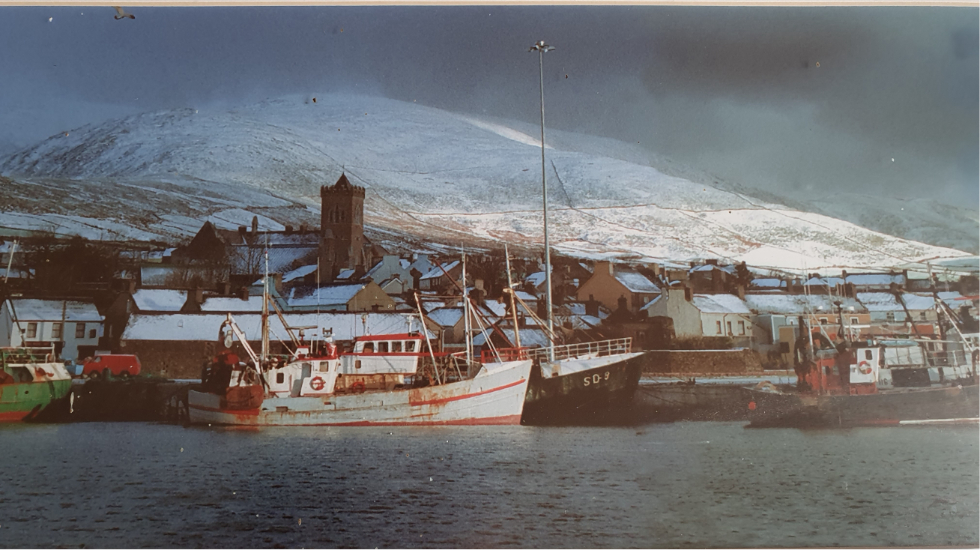The day of which Warwick McFadyen write, the weather freezing, the hills that cradle Dingle covered in snow.
Will this be our winter of discontent? No, I’m not thinking of the footy. The first waves of weather point that way. June’s first two weeks in Melbourne were the coldest since 1949. We, and south-east Australia, have been battered by south-west winds, bringing ice to our homes and snow to the alps.
And with the freeze has come its attendant cloud and rain, and the colour grey, unrelenting in its aspect. What gives me warmth is reminding myself that all things are relative. I could be in Ireland. Some years back I was.
I am walking along the shore of Dingle Bay in southwest Ireland. It is winter. My teeth cannot stop chattering. They aren’t making sense. There’s no rhythm to the chip, chip, chip, chatter, chatter, chatter. My jaw is aching, as if a steel rod is very slowly grinding its way through the bone. My eyes cannot stop watering.
The wind is pushing me backwards, as if to say go back go back, you’ve no place being out here today. Head down I force one foot in front of the other, at times to stand still, at times a small step forward. I have never been so cold. As it turns out I have never been as cold again.
I am out in this foulness of nature because, as a lad from semi-temperate Newcastle, NSW, I paradoxically want to experience it. Now I am a mere leaf in the storm, buffeted this way and that, just to feel the ice on my face.
PLEASE HELP US CONTINUE TO THRIVE BY BECOMING AN OFFICIAL FOOTYOLOGY PATRON. JUST CLICK THIS LINK.
The hills that cradle Dingle are covered in snow. This is not so common. Dingle enjoys the benefit of the warmer Atlantic Gulf Stream, but also is at the mercy of the gales crashing in off the Atlantic.
The tender mercy of this day is that the clouds cannot resist the gales and scud across the sky, opening the horizon to the blue. It is glorious in its glacial way. I would take it any day over the other extreme, that of the inertia of grey that can descend over the town and lower itself into your soul.
This happened the following March. I had settled into life in Dingle, had endured the winter, and was looking forward as every sane person was, to the arrival of spring and summer and the awakening of new life, and the blooming of the spirits. But then this March knew nothing of human expectations.
The gun metal steel of low cloud took up berth over the village, bay and countryside, and there it stayed for 31 days and 31 nights. I know this because I counted each and every one of those days of leaden skies.
Each day I would look into the sky, for a crack in the cloud, for a parting of grey to the blue beyond. But nothing. The effect of this can be profound. Even the locals, no stranger to harsh winters, were going stir crazy. We all wanted release from the oppressiveness of the grey skies.
When the break in the clouds came, so the spirits lifted, as if kites, towards the blue. Laughter returned, smiles appeared through the ice-worn faces. It was a kind of azure ecstasy.
And we were content.











